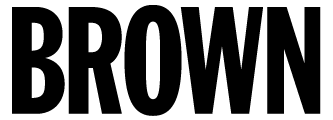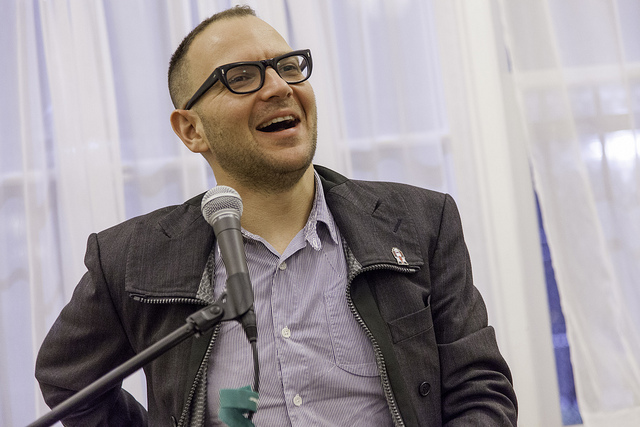At the end of September, the Brown Institute, along with the Heyman Center, SIPA, and the Libraries, are honored to announce a week of events featuring Cory Doctorow, blogger, journalist and science fiction writer. The week includes an intimate conversation with Dennis Tenen about science fiction and contemporary authorship, a talk about digital copyright and its unintended impacts, and a large outdoor lecture and conversation with Jad Abumrad of WNYC’s Radiolab about regaining power in our relationship with big tech.
A Conversation with Cory Doctorow
September 25, 2018 – 12:15-1:30pm
The Heyman Center
Register at brwn.co/cd3
Cory Doctorow will join Dennis Tenen, Associate Professor of English and Comparative Literature, in a conversation about science fiction, the changing material conditions of contemporary authorship, copyright, and surveillance.
Huxleyed into the Full Orwell: How Digital Copyright Abuse Has Abetted a Culture of Mass Surveillance and Social Control
September 26, 2018 – 6:00-8:00pm
Butler Library, Room 523
Register at brwn.co/cd2
Journalist and science fiction writer Cory Doctorow will talk about the millennia-old social compact of the book, and the arbitrary renegotiation of that contract in the age of ebooks, where prior restraint, restrictions on lending, donation and gifting, and invasive, surveillant technologies have become the norm. He will investigate how technology and license agreements have gone on to colonize our relationships with other devices and systems, from voting machines to tractors, insulin pumps to thermostats.
Beyond “I agree”: A democratic technology, without Big Tech
A lecture and conversation with Jad Abumrad, host of WNYC’s Radiolab
September 27, 2018 – 5:00-6:30pm
The Lecture Hall in Pulitzer Hall
Register at brwn.co/cd1
The techlash marks the end of complacency over Big Tech: in a single instant, states have gone from being completely blase about the risks of a monopolized digital world run by high-handed CEOs who answer only to their shareholders, to being certain that the answer involves limiting the excesses of the digital monopolists…by enshrining them as permanent monarchs of the internet and then extracting some regulatory promises from them.
It’s a form of Constitutional Monarchy, in which Google, Apple, Facebook, Twitter and their ilk are acknowledged as the rightful rulers of the net, and then subjected to the limits placed on them by aristocratic/technocratic regulators.
There’s a better way. A more democratic way. The way of the hacker. Hackers don’t accept take-it-or-leave it offers. Instead, hackers take the parts they want and filter out the parts they don’t. The most democratic future is one in which we tame big tech by taking away its legal right to stop users — and the toolsmiths who serve them — from picking and choosing the parts of the platforms we like, configuring them to suit our needs with third-party tools, and tearing up the take-it-or-leave it deal that’s on the table today.
It’s undemocratic to have the world shaped by a tiny elite of coders. It’s less democratic to leave the shape of the world up to the coders’ massive profit-driven employers. The MOST democratic future is one where everyone gets to hack, where we seize the means of computation and distribute it to everyone.

